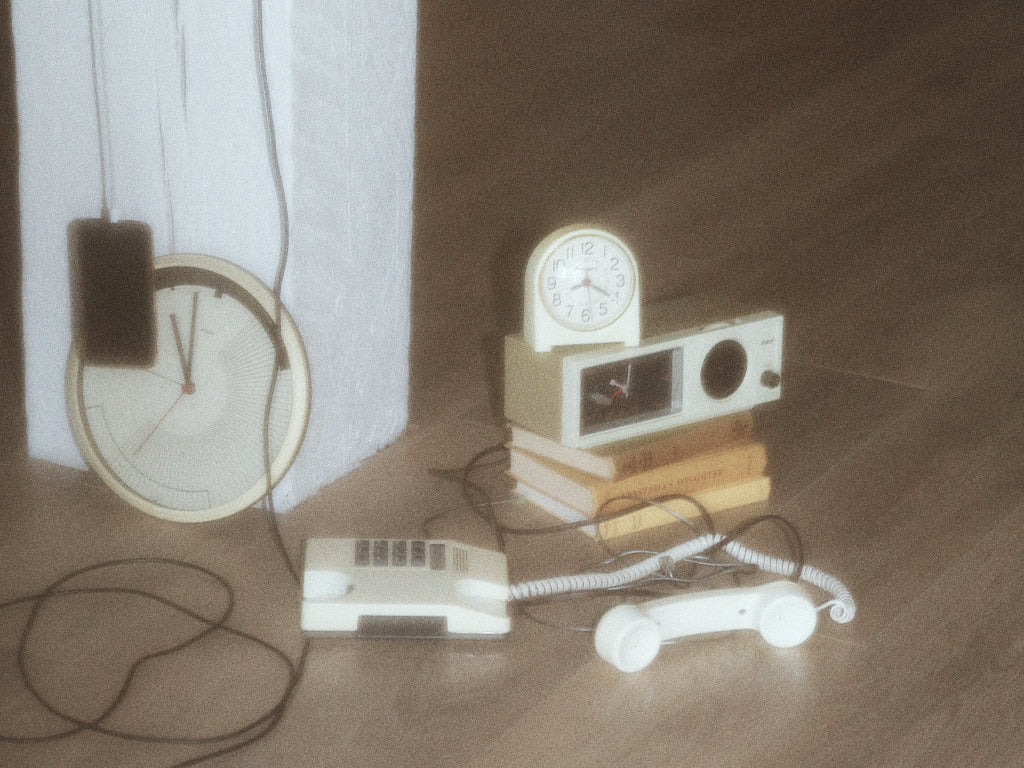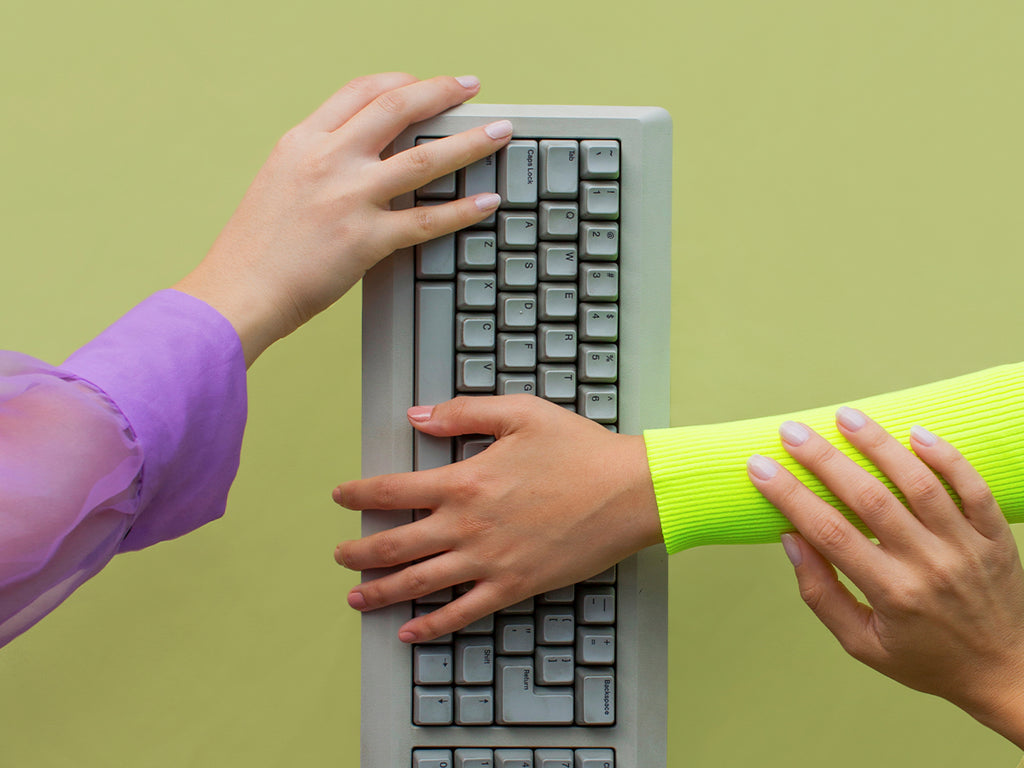How to Make Working from Home Work for You
The staying sane strategy you may need, whether you like it or not.
Congratulations! You, a person who typically works in a workplace all day, have been given the go ahead to work from home for the foreseeable future. The transition from going into an office every day to suddenly never having to step foot outside of your home is exciting at first – but as the days begin to blend together, working from home can begin to feel more daunting than fun.
It’s important to take on your new telecommuting schedule with a solid plan. Without one, you might just emerge a week from now in the same tattered t-shirt and sweats you started in, with only a faint memory of what the outside world is like.
Going into your place of work every day helps to tell your brain it’s time to get to work. When you’re working from home, it’s a good idea to keep a few tips top of mind to stay productive and on top of your to-do list. So, grab a small fistful of every snackable food in your kitchen (after sanitizing your hands, obviously), sink into your comfiest chair, and let’s talk strategy for making the most of working from home while still getting stuff done.
1. Set working hours
When you’re working from home, the lines start to blur between work and life. The balance gets totally thrown off, and you’re not helping anyone if you’re sleeping until noon and then working late into the night. It’s tough to know when to quit when you literally can’t leave your work at work.
This is a great time to take advantage of not being surveilled by your boss and creating working hours that really do work with the ebbs and flows of your productivity. I have a simple formula for doing so:
[Your normal working day hours] - [the time you spend at the office scrolling social media, searching for the perfect spring dress, watching Ellen clips on YouTube] = the amount of time you actually need to finish a day’s tasks.
Working from home grants you the freedom to create your own schedule. Be realistic about how much time you need to complete the day’s tasks and don’t overwork yourself, or let your work completely take over every hour of the day (we don’t even do this at the office!). Take advantage of creating a schedule that makes the working day work for you. If that means working a few hours in the morning and then taking a break to do some downward dogs or walk to the nearest bodega, give yourself permission to do so and feel good when you do.
2. Get some exercise
Speaking of exercise, you’re going to need a little bit. The other day, I took a gander at the Health app on my phone to see how many steps I had taken after a rousing day of carrying my laptop back and forth from the dining room table to my couch. I had taken 26 steps. Over a 24 hour period. That is exactly 9974 less steps than is recommended to stay healthy.
It’s hard to get your physical activity in when you’re confined to an 800 square foot apartment that is filled to the brim with Yankee candles (the big ones!) and floral chairs, but exercise can help break up your day, increase energy, and improve sleep. The CDC recommends adults get 150 minutes of exercise each week, which breaks down to roughly 30 minutes, five days a week.
When you aren’t commuting, or getting up from your desk to get lunch down the street, it can be hard to get some movement into your day. It’s no Barry’s Bootcamp, but even just doing 30 minutes of strength exercises, or a YouTube yoga video in the living room can get your blood pumping and give your brain a break from work. Plus, no one will know if your sports bra matches your leggings.
3. Have a designated workspace
Working from bed seems like a good idea, but it can actually be detrimental to your work/life balance. And keeping that balance is crucial to staying sane while working from home. Harvard Business Review suggests setting clear boundaries when your work and home life blend together, which can improve productivity. If you’re not productive, you might end up working outside of your designated hours and causing yourself more stress, while scrambling into the night to get things done.
4. Take off your pyjamas
Getting out of your PJs and into regular work clothes helps tell your brain it’s time to get to work. Starting the day by getting ready like you would for the office helps send the same signal, even if this isn’t actually the case. When you aren’t changing your environment between home and work every day, this is apparently a great way to still designate specific hours between work and play, and make sure your brain and body get the hint. But let’s be honest, hanging out at home in high-waisted jeans and a blazer feels bizarre. There’s no need to put on a suit to set up shop at your dining room table, but you should change out of whatever you slept in – even if it’s just nicer pyjamas, or a pair of leggings you wouldn’t be embarrassed to get caught by the Uber Eats delivery person in.
5. Turn on your TV
It turns out background noise can have big effects on productivity. Your personality and work style means what type of background noise is best for you will vary, or whether silence is key to your productivity. Getting to work from home by yourself can be a godsend for some, but for others, the silence can start to feel really lonely. When your apartment starts to feel a little too quiet and you’re over Spotify’s playlist for concentration, putting on reality TV can actually help. Not only will the sound fill up the empty space, but you can feel like you’re working with Lisa Vanderpump in her villa’s swan-filled garden. It’s mindless enough that you can keep working, while tuning in and out for the juicy drama. At the very least, it’s a welcome distraction from the doomsday 24-hour news cycle. :’)
6. Enjoy your freedom
Working remotely when you normally work in an office can be daunting, but it can also be fun and exciting. Enjoy it while you can, because it won’t last forever – even though it may sometimes feel otherwise.
This post is tagged as:
You may also like...
The Latest
People & Places
How Ara Katz is Redefining “Self-Care” as Rooted in Science with Seed
The co-founder, mother, and self-proclaimed serial entrepreneur unpacks her philosophy on what it means to be well. Ara Katz hates the word “success”. Not because of its listed definition in a di...

Do Good Werk
9 Passive-Aggressive Email Phrases That Are Basically Evil
A Rosetta Stone for every time you want to :’).

Woo Woo
Get to Know Your Astrological Birth Chart
How to find meaning in the stars — and what it means for you.

People & Places
The 5 Best Places In New York To Meet Your Next Investor
Where to rub shoulders with the city's movers and shakers.

Do Good Werk
10 Unhealthy Thoughts You Convince Yourself Are True as a Freelancer
If you work alone, you might be particularly susceptible to distorted thoughts that hurt your mental health.

People & Places
Creating a Conference-Meets-Summer-Camp for Adult Creatives
An interview with Likeminds founders Rachael Yaeger and Zach Pollakoff This past September, I sat in front of an obituary I wrote for myself after a session with a death doula. No, I didn’t know w...

People & Places
When Something Golde Stays: An Interview with Golde’s Co-CEOs
“For us it was never a question,” says Issey Kobori, speaking of the decision to build a business with his partner Trinity Mouzon Wofford. At just shy of 27, Kobori and Wofford have secured a host ...

Better Yourself
Are They Toxic? Or Are They Human?
There’s a difference between putting up boundaries and putting up walls, and the latter is what breaks relationships.

Do Good Werk
How To Combat Seasonal Affective Disorder At Work
Here’s what to do if seasonal affective disorder starts to take a toll at the office.

People & Places
Reclaiming Womxn's Wellness Spaces from a White-Dominated World
How The Villij built a collective that their community can connect to.









